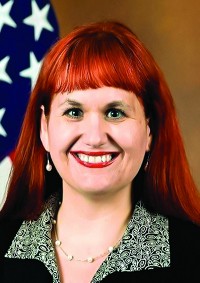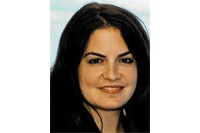Advertisement
Grab your lab coat. Let's get started
Welcome!
Welcome!
Create an account below to get 6 C&EN articles per month, receive newsletters and more - all free.
It seems this is your first time logging in online. Please enter the following information to continue.
As an ACS member you automatically get access to this site. All we need is few more details to create your reading experience.
Not you? Sign in with a different account.
Not you? Sign in with a different account.
ERROR 1
ERROR 1
ERROR 2
ERROR 2
ERROR 2
ERROR 2
ERROR 2
Password and Confirm password must match.
If you have an ACS member number, please enter it here so we can link this account to your membership. (optional)
ERROR 2
ACS values your privacy. By submitting your information, you are gaining access to C&EN and subscribing to our weekly newsletter. We use the information you provide to make your reading experience better, and we will never sell your data to third party members.
Careers
State Department Names 2006 Science Fellows
Third group of six Jefferson Science Fellows includes one chemist
by Lois R. Ember
June 15, 2006

The State Department's Jefferson Science Fellow program, launched in 2003, has just named its third group of six fellows, including chemist Katherine Seley-Radtke. After security checks for secret clearances and an orientation period, the six will begin serving in August.
Named after the first secretary of state, Thomas Jefferson, the program aims to bring in tenured professors of science and engineering to advise State Department officials on the science undergirding current and emerging policy issues.
The Jefferson fellows program is the brainchild of George H. Atkinson, the second science adviser to the secretary of state. "We are exceptionally proud of the progress the Jefferson Science Fellow program has made and of the remarkably positive impact Jefferson fellows have made within the Department of State," Atkinson tells C&EN.
Seley-Radtke, 48, is an associate professor of chemistry and biochemistry at the University of Maryland, Baltimore County. Her research focuses on the discovery and development of anticancer, antiviral, and antiparasitic drugs. Her current research projects aim to design and synthesize nucleoside inhibitors of enzymes key to replication, and to use modified nucleosides and heterocycles to probe the structure and function of DNA and other biological systems.
In addition to her scientific pursuits, Seley-Radtke has also been involved with the Defense Department's nonproliferation efforts. For the past five years she has been working with the Pentagon's Defense Threat Reduction Agency on collaborative efforts with Russia to halt the spread of biological weapons.
Neither she nor the other five fellows have selected their assignments at the State Department and won't until August. Still, Seley-Radtke tells C&EN that her "background in antiviral and medicinal chemistry and collaborative nonproliferation projects with Russia on smallpox" give her wide latitude to select an assignment from among "several regional bureaus or offices concerned with issues of nonproliferation or emerging infectious diseases."
Seley-Radtke is a member of the American Chemical Society and a former chairman of its Georgia chapter.
The other fellows are Osama O. Awadelkarim, professor of engineering and mechanics at Pennsylvania State University; Kim Boyer, professor of electrical and computer engineering at Ohio State University; Claudio Cioffi-Revilla, professor of computational social science at George Mason University; Paul Davis, dean of interdisciplinary and global studies at Worcester Polytechnic Institute; and Michael Mauel, professor of applied physics at Columbia University.




Join the conversation
Contact the reporter
Submit a Letter to the Editor for publication
Engage with us on Twitter